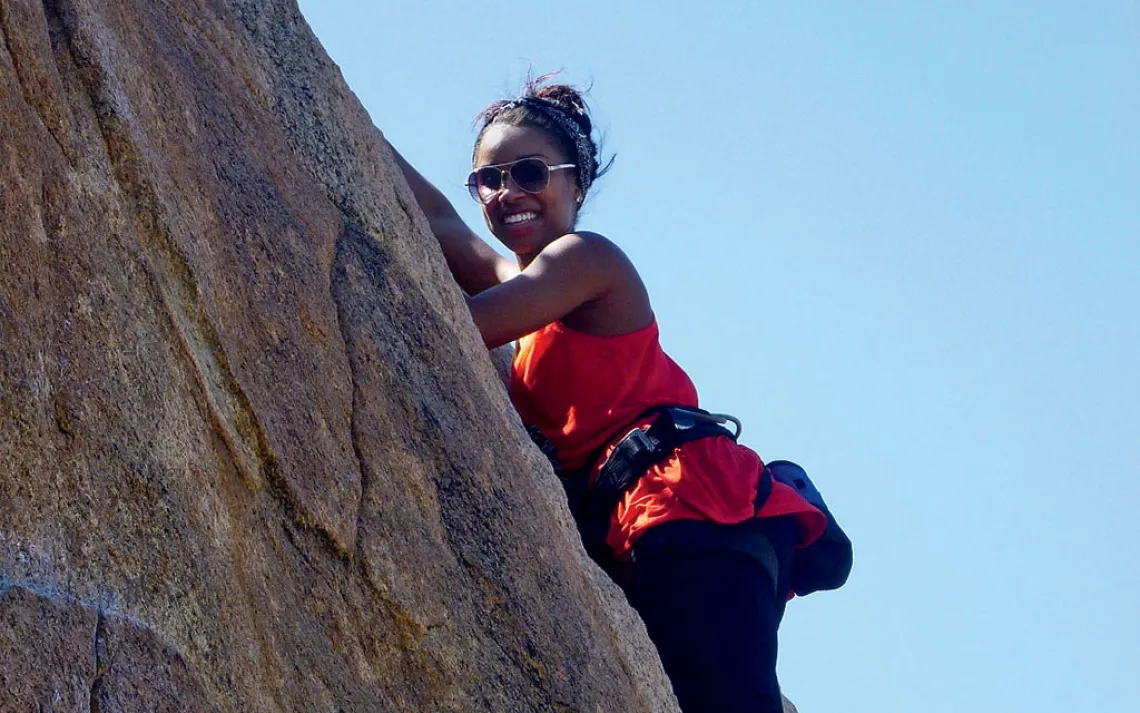Expedition Denali

Brittany Johnson rock climbing at Mt. Rubidoux. | Photo by Stephen Shobe
A JOURNALISM PROFESSOR ONCE TOLD ME to get to know my profile subjects inside and out during preliminary research but, when it came time to interview them, to act as if I knew nothing so they could tell their own stories. That was what I tried to do with the members of Expedition Denali, the group of black climbers who set out last year to summit North America's highest peak ("To the Mountaintop").
After all, I hadn't been on the mountain—they had. And no one could tell their stories like they could.
I'd spent the weeks after my editorial internship at Sierra learning about the group—where they came from, how they were preparing for the climb, and what they were doing in their communities. They were activists, dancers, entrepreneurs, musicians, artists, and businesspeople. Their passion for the outdoors seemed palpable—and that was before I met them.
Then I sat in coffee shops, climbed rocks, and rode in pickups, listening to Scott Briscoe, James Kagambi, Rosemary Saal, Stephen Shobe, and Erica Wynn recall moments of discouragement and triumph during their three weeks together in Alaska. These glimpses into their lives made me realize that although the excursion itself took courage, their belief in what it stood for was the element that resonated.
The climbers not only wanted to show the world what it's like when people of color go on a high-profile wilderness adventure; they also want people of color to have the opportunities and resources to consider outdoor activities an option in the first place. Wynn said that she couldn't have afforded a climbing course without GirlTrek, an organization that encourages black women and girls to live healthy lives. Saal might not have discovered her love for mountaineering had it not been for Girls Outdoor Leadership Development.
With this in mind, Expedition Denali members created a national program called 10,000 Steps to Denali, which encouraged young people and their families to find natural settings near their own communities and walk 10,000 steps on the team's final day on the mountain.
Programs like these are the key to diversifying the outdoors. It starts with getting people—all people—to understand that a trek on Denali is possible whether you grew up in the Sierra or in a cramped apartment in the heart of Queens. "A lot of people of color aren't even aware that these activities are available to them," Briscoe told me. "My hope is to simply let them know they can do it."
For more on Expedition Denali, go to expeditiondenali.nols.edu.
 The Magazine of The Sierra Club
The Magazine of The Sierra Club



